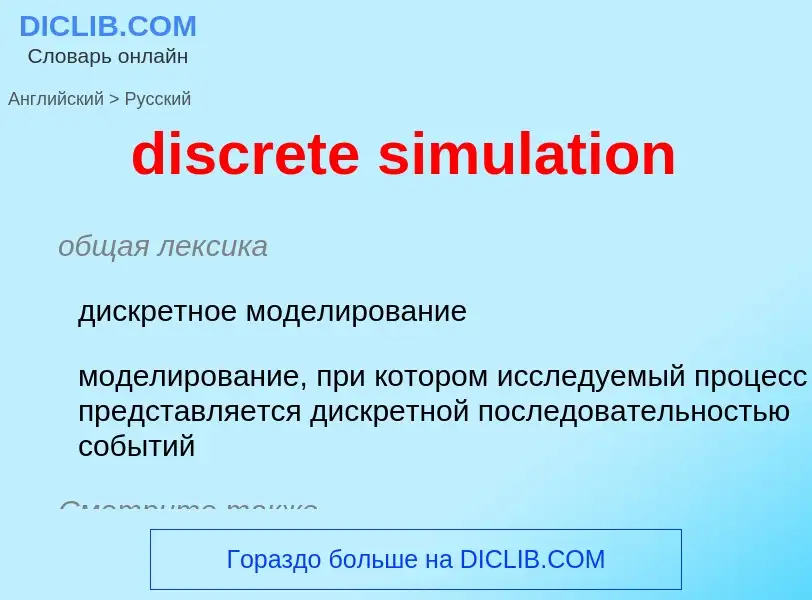Перевод и анализ слов искусственным интеллектом ChatGPT
На этой странице Вы можете получить подробный анализ слова или словосочетания, произведенный с помощью лучшей на сегодняшний день технологии искусственного интеллекта:
- как употребляется слово
- частота употребления
- используется оно чаще в устной или письменной речи
- варианты перевода слова
- примеры употребления (несколько фраз с переводом)
- этимология
discrete simulation - перевод на Английский
общая лексика
дискретное моделирование
моделирование, при котором исследуемый процесс представляется дискретной последовательностью событий
Смотрите также
математика
дискретная группа
математика
дискретная подгруппа
Определение
Википедия
A discrete-event simulation (DES) models the operation of a system as a (discrete) sequence of events in time. Each event occurs at a particular instant in time and marks a change of state in the system. Between consecutive events, no change in the system is assumed to occur; thus the simulation time can directly jump to the occurrence time of the next event, which is called next-event time progression.
In addition to next-event time progression, there is also an alternative approach, called incremental time progression, where time is broken up into small time slices and the system state is updated according to the set of events/activities happening in the time slice. Because not every time slice has to be simulated, a next-event time simulation can typically run faster than a corresponding incremental time simulation.
Both forms of DES contrast with continuous simulation in which the system state is changed continuously over time on the basis of a set of differential equations defining the rates of change of state variables.

